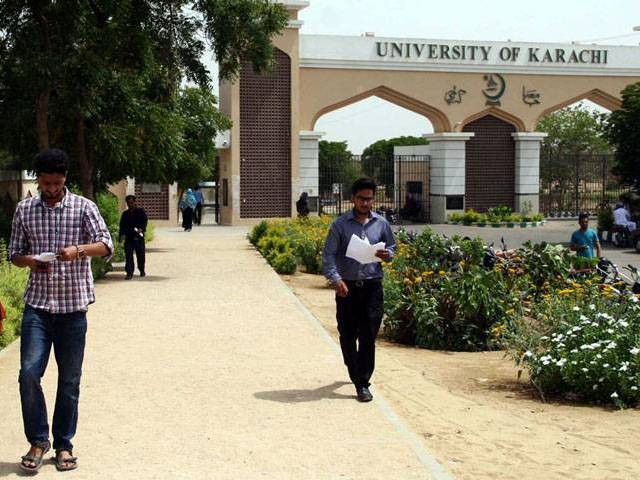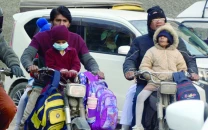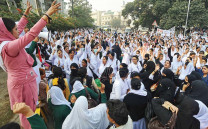‘Nikahnama key to women’s rights after marriage’
Team Break Free — Active Citizens hosts workshop marital rights at KU

Active Citizens hosts workshop marital rights at KU. PHOTO: FILE
Speaking at a one-day workshop titled 'Women Reconstruction of Self', Dr Iraqi was of the view that mental and psychological torture and abuse is the worst form of domestic violence. The workshop was an initiative by Team Break Free - Active Citizens.
CII proposes husbands be allowed to ‘lightly beat’ defying wives
Dr Iraqi termed the topic of the talk as an important one which will help create awareness regarding women's rights among university students.
"Both the bride and groom must be highly vigilant regarding the clauses of the nikahnama," he cautioned, adding that brides must make their own decisions and also must examine the nikahnama themselves. He said the brides should speak up in order to add any clause they feel is important for their future.
Explaining why the nikahnama must have a clause that ensures future financial protection in the form of haq mehr or dowry, he said, "You have to be brave enough to protect yourself first then others may help you". In Pakistan, he explained, there is a myth regarding the low divorce rate, that it is due to societal constraints but instead the divorce rate has a strong financial aspect. This is partly why the upper class has a high rate of divorce while living in the same society and culture, he claimed.
During the panel discussion, Barrister Shahida Jamil and Supreme Court advocates Syed Shoaun Nabi and Tahera Hasan termed the word 'divorce' a genuine Islamic and legal right of women under khula.
The panelists also agreed upon the notion that domestic violence is illegal and prohibited in Islam. "The police don't interfere in domestic matters, which is the major cause of domestic violence," said Jamil.
Former dean of the faculty of management and administrative sciences Prof Dr Abuzar Wajidi termed divorce a major societal issue and called for a joint societal framework to address the issue. "Divorced women should live their lives normally, as life goes on after all tragedies," he added.
India's Muslim women fight 'triple talaq' divorce
Nabi was of the view that marriage was the very first social contract between men and women and divorce must always be the last option. "Husbands must have a mature mindset and that depends on their upbringing," he explained.
He also said that lawyers and judges often try to advocate for reconciliation between partners so that a family is not broken and people related to them do not suffer. "One of the main reasons of divorce is the joint family system and, in our society, second marriage is considered a taboo," Nabi added.
Emphasising on the non-implementation of anti-dowry laws, Hasan said, "There is no lack of laws regarding women's right to divorce, there is just a lack of will to implement them".
Psychologist Dr Qudsia Tariq said that divorce becomes necessary and unavoidable when verbal abuse becomes a regular practice. "Not only men are responsible for this, women are also involved in mental and verbal abuse," she explained.
Other panelists, including Dr Uzma Shujaat, Wali Zahid and Riffat Humayun, termed the issue 'natural' as conflicts are bound to happen when human beings are involved with each other.
Published in The Express Tribune, August 2nd, 2016.


















COMMENTS
Comments are moderated and generally will be posted if they are on-topic and not abusive.
For more information, please see our Comments FAQ